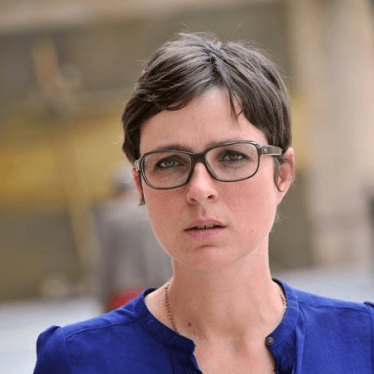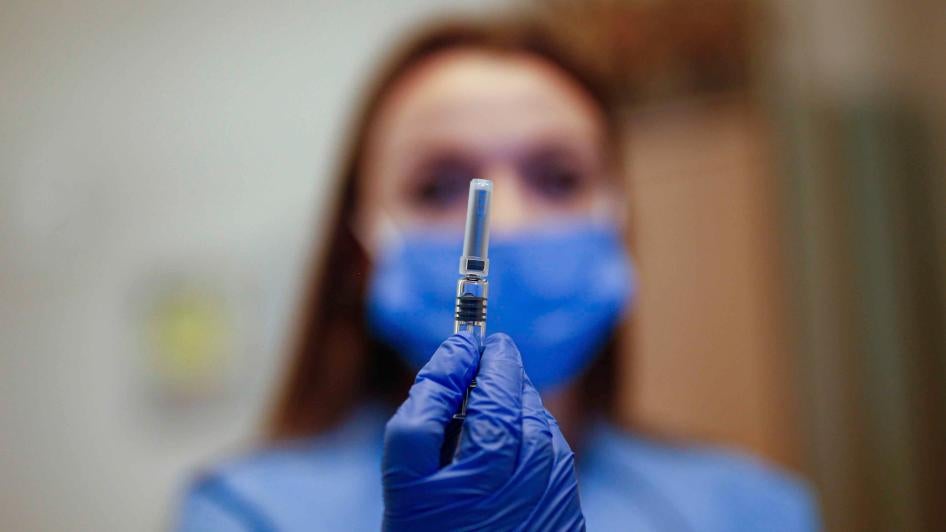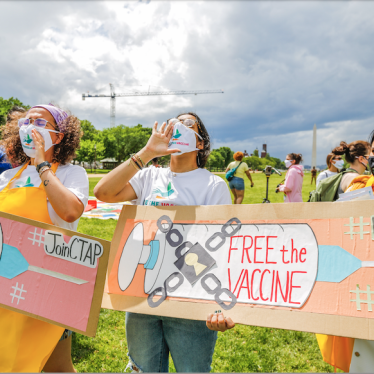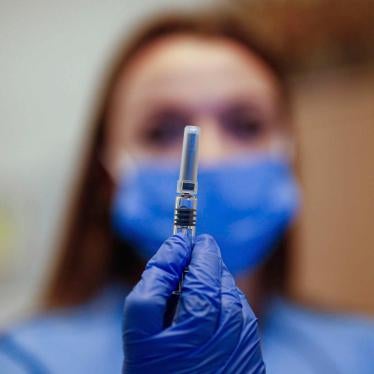The world is witnessing a tale of two pandemics.
France is unwinding lockdown measures, while in India, Nepal, Cambodia and Brazil, Covid-19 cases are ratcheting up. “What matters is the momentum," Health Minister Olivier Veran said earlier this month as he celebrated halving the seven-day moving average of new cases in France. But the global momentum is worrying.
According to the World Health Organization, more cases were reported in the last two weeks of April than in the entire first six months of the pandemic. These trends are exacerbated by unconscionable global inequity in access to Covid-19 vaccines. Lower-income countries — 47 percent of the world’s population — have received only 17 percent of the world’s vaccines, while Europe is already reserving booster doses for use in the coming years.
For more than two weeks, everyone over 50 in France has been eligible for a vaccine and next-day vaccine slots are open for those over 18. Meanwhile, in many parts of the world, older people and front-line health workers could still be waiting for vaccines for months, or even years. The competition for Covid-19 vaccines is fierce, and it can only be resolved through boosting production. The Biden administration in Washington surprised the world by announcing that the US government would support the effort to waive some intellectual property rights on Covid-19 vaccines, in the hopes of expanding access.
The chorus of those demanding a waiver by the World Trade Organization is impressive. After India and South Africa put forward the proposal in October, it has attracted support from the head of the World Health Organization, Nobel laureates and former world leaders, lawmakers across Europe, the Pope, unions, and countless civil society organizations from around the world. But the European Commission remains in opposition and the French government blows hot and cold.
In the wake of the US announcement, President Emmanuel Macron declared on May 6 that he was "fully in favor of lifting the intellectual property" on the vaccines. But he backtracked the next day, saying that “intellectual property isn’t really the issue” and suggested that donations of doses, ending export restrictions, and voluntary agreements on "sharing knowledge and know how" should be prioritized instead. Last week, speaking at a summit with African leaders President Macron requested that “all the constraints in terms of intellectual property that are blocking the production of any type of vaccine in Africa” be lifted. The easiest way to remove all of these constraints would be to adopt the waiver proposal at the TRIPS Council. But instead, last week's summit endorsed voluntary licensing, which is just more of the status quo. Last Friday at the World Health Summit, the French President finally made his position on the waiver conditional on the conduct of a study by the WHO and the WTO which he requested to be completed by... October 2021.France was the first country to donate vaccine doses from its domestic supply to the global vaccine procurement facility, COVAX. But donations are far from enough. We need to create diversified production and more pharmacies around the world. The waiver proposal on the table covers the full spectrum of products needed to protect peoples’ rights to life and health, including tests, therapeutics and vaccines. With variants spreading, scaling up production of all these products is key, so that we’re rationing less instead of arguing how to ration better.
Macron’s skepticism of the waiver feels rooted, in part, in an anachronistic assessment of the developing world’s capacities. He argues that even if intellectual property rights are waived, manufacturers in places like Africa currently are not equipped to make Covid-19 vaccines. But times are changing. The Africa Centers for Disease Control has already identified vaccine manufacturing capacity in Senegal, South Africa, Morocco, Egypt, and Tunisia. Rwandan President Paul Kagame has expressed interest in bringing the first mRNA manufacturing facility to Africa. The World Health Organization has plans in place for a Covid-19 Technology Access Pool and a series of mRNA technology transfer hubs to share vaccine technology. The WHO has warned that technology used in the transfer hub must be free of intellectual property constraints, which makes the waiver all the more essential. France should throw its weight behind these proposals and find ways to make sure pharmaceutical companies participate too.
One hundred governments, including all of the world’s lesser developed countries and the entire continent of Africa, support the waiver proposal. Undoubtedly, there are other factors affecting global supply too, but had the EU receive positively and engaged constructively on the waiver last October when it was first proposed, it might have already opened the way to new production capacity, boosting supply and increasing global access.
For a year, President Macron has been proclaiming that vaccines should be a “global public good.” And he is completely right. But France has still not concretely translated those words into action. Emboldened by the US government’s reversal, in the past week, leaders from Spain, Belgium, and Ireland have expressed support. Even the EU Commission President has said she is willing to discuss how the waiver proposal could help ramp up vaccine production. It is urgent that France gets out of its ambiguity and pushes the EU to the right side of this issue.
Akshaya Kumar is Crisis Advocacy Director at Human Rights Watch.
Bénédicte Jeannerod is the France Director of Human Rights Watch










